Allentown was annexed by the city of Pittsburgh in 1872 and home to European immigrants who found work at the nearby steel, iron and glass factories. Its Victorian commercial business district along Warrington Avenue is one of the city’s densest.
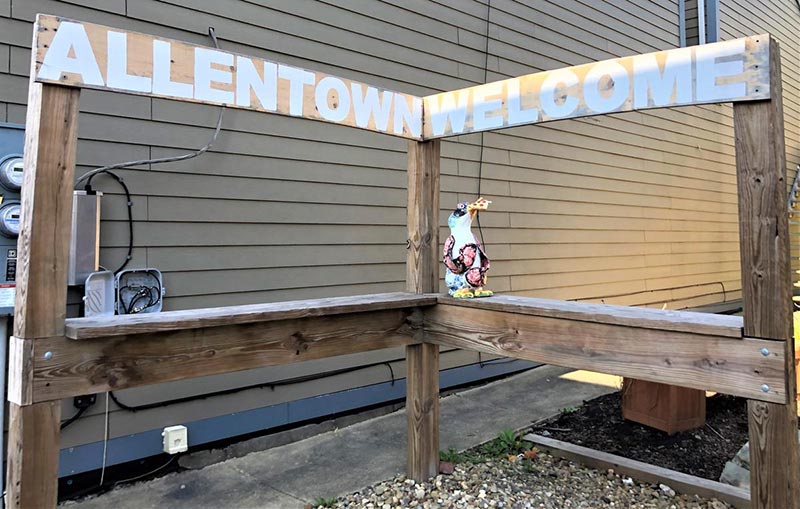
Five years ago, the neighborhood’s business district vacancy rate was 40 percent. Between 1950 and 2010, the population dropped by nearly 5,000 residents. Aaron Sukenik, executive director of the redevelopment group Hilltop Alliance, said the decline helped prompt the creation of a neighborhood plan.
“We looked to prioritize subsidizing and soliciting specific types of businesses for the main street,” Sukenik said. “What we’ve really focused on is, essentially, occupying and seeing reinvestment in the previously vacant properties.”
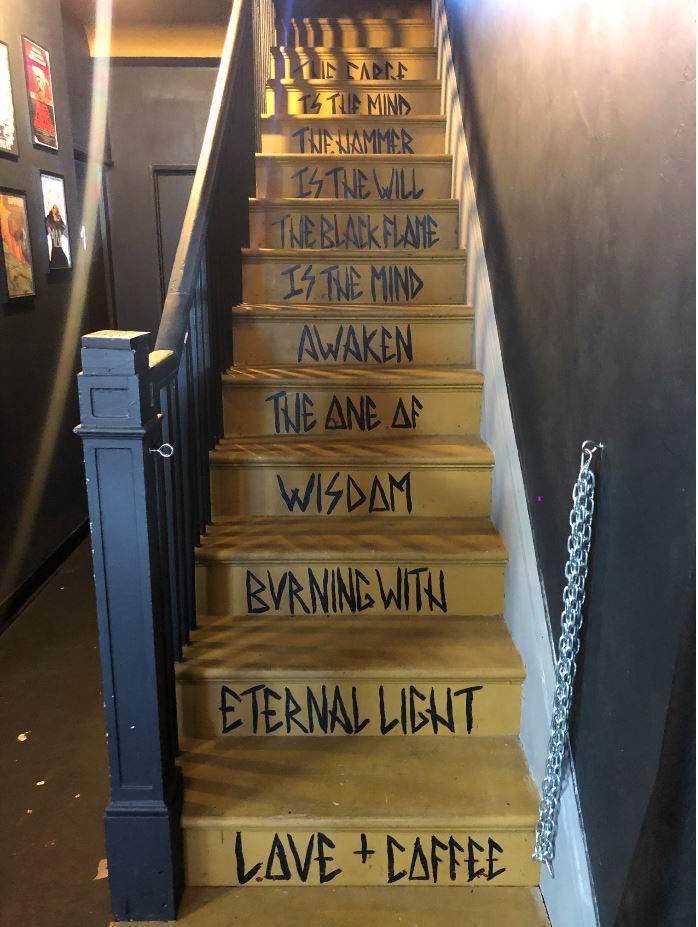
The draw of the “odd”
Incentivized by rate abatement and business potential, Ashley Bianca-Corts decided it was time to pursue her dream of opening a music venue and coffee shop. The result was Black Forge Coffee House, a heavy-metal themed cafe along Arlington Avenue.
“At the time, there was nothing going on there that could bring people to the neighborhood,” Bianca-Corts said. “So we had to be really creative with what we wanted to do as part of our mission.”
Faced with the challenge of isolation on the hilltop, Black Forge owners knew the space had to stand out so customers would make the trek for a cappuccino. The shop is unlike most in Pittsburgh; a large anvil is fixed to the coffee bar and the walls are lined with artwork of monsters and dark deities. The cafe’s soundtrack is metal music; shredding guitars are met with the clink of espresso cups.
“It’s definitely different from the average coffee shop,” Bianca-Corts said. “We stay true to being this, underground, kind of, interesting coffee shop.”
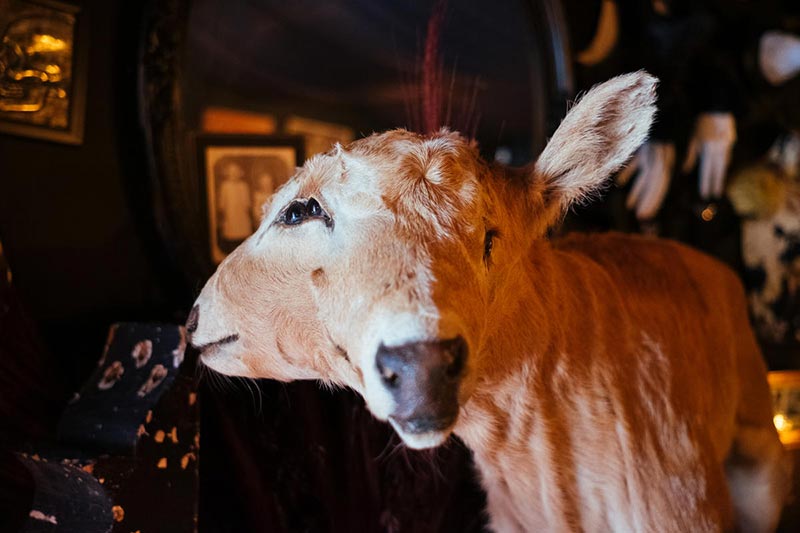
After watching the success of Black Forge, a pair known for their annual Morose & Macabre’s Atrocity Exhibition started to consider opening a brick-and-mortar shop of their own. Surrounded by a taxidermied two-headed calf and a vial of animal bones, Kelly Macabre Noir said she contacted Bianca-Corts about a business plan and soon after, rented a space for her shop The Weeping Glass in 2017 on Warrington Avenue.
“It was a great opportunity to try something out to see, you know, would a brick-and-mortar store actually work out?” Macabre Noir said. “These are young, weird, underground, interesting, unique businesses that can’t necessarily afford right off the bat, because they’re so niche, to be able to afford the $2,700 or $2,000 rent that’s going on in the up-and-coming neighborhoods.”
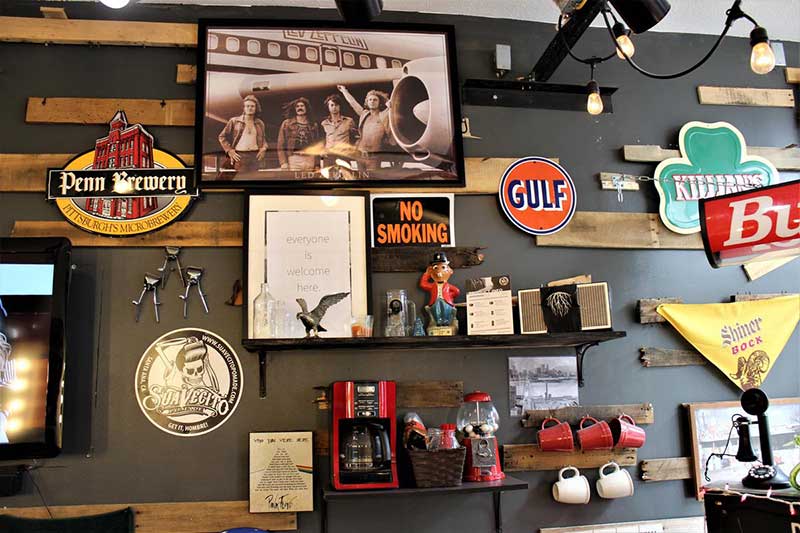
Up-and-coming neighborhoods include places like Lawrenceville, which has experienced gentrification and rising rents in recent years. The affordability and creative opportunities in Allentown also attracted Dark Root Barbershop co-owners Ricky Dennis and Zach Miller. Both were working in the East End, but wanted to open their own place.
“Pittsburgh’s always been working-class. It’s always been steel and stuff like that,” Miller said. “We’re still bringing that working-class ethic of, you know, not wanting to pay someone, but actually building it ourselves. It’s that pride of, you know, just do it … that’s what this city was built on.”
The barbershop is a reflection of Dennis’ and Miller’s personalities. Its walls are covered with antique gas station signs and old-fashioned barber tools.
Dark Root fits in well with its neighbor, The Weeping Glass, which Dennis and Miller said was a bonus to moving to the community. Dennis, who grew up in Allentown, said he’s glad to be a part of an emerging DIY (colloquially used to describe self-sufficiency and often tied to punk music and lifestyles) business collective.
“We’re not the same, but we have the same, almost aesthetic, the same vibe,” Dennis said.
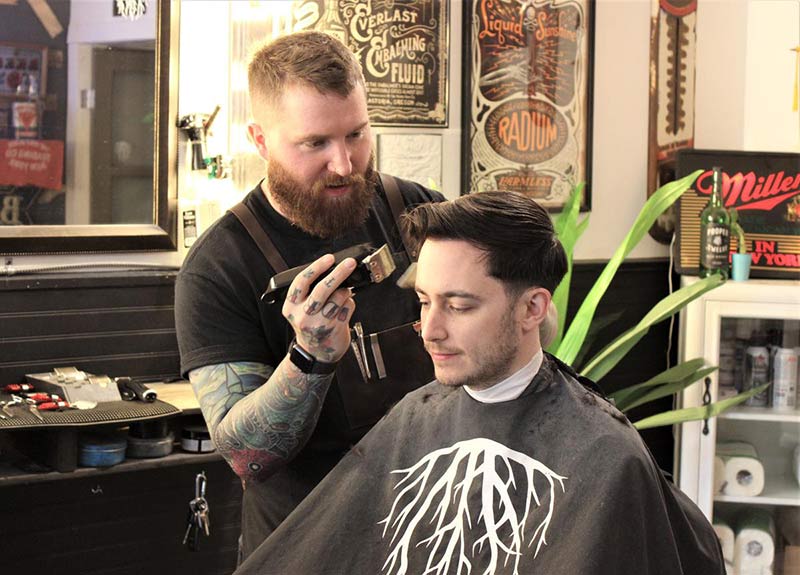
Filling the need
Brooks Criswell says when he and his partner first opened their punk-metal-vegan restaurant, Onion Maiden, Pittsburgh residents didn’t know where Allentown was located.
“A lot of them would pause and look at me funny and be like, ‘Oh, you mean like by Philly?’” Criswell said, referring to Allentown, Pa., nearly 300 miles east of Pittsburgh. “And I’d be like, ‘No, it’s a neighborhood here in Pittsburgh.’”
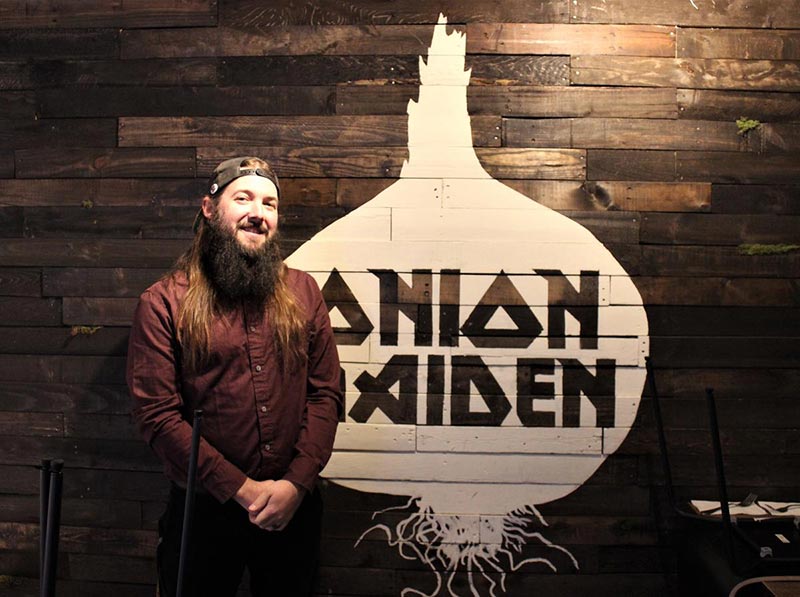
Criswell and his wife, Diana “Dingo” Ngo, and their business partner, Elysa Hoffman, started their vegetable-based Asian and American comfort food business as a pop-up, appearing at vegan festivals and brunches throughout the city. When the opportunity to establish a permanent kitchen and dining space became available, they chose Warrington Avenue and opened in 2017. He acknowledges that they aren’t the first restaurant on the street — Alla Familia and Breakfast at Shelly’s are longtime presences in the community — but Onion Maiden’s vegan dishes were unusual when the business first opened and the concert posters that line the dining room stood out to customers.
“We incorporate music and just like, find names and puns and all this ridiculous stuff that can get people drawn in,” Criswell said. “My favorite reviews are from people who have been like, ‘I’m not vegetarian, but I had a really great meal, a really great time.’”
The menu is quirky: customers can order a hotdog called “Kale Satan” or “Kimmy Gibbler” or a noodle dish dubbed “Come My Pho-Natics.”
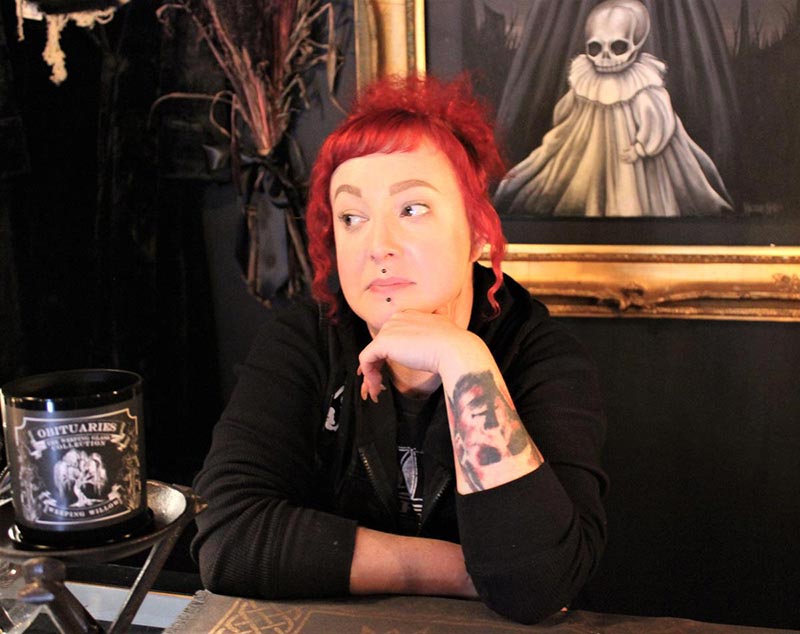
Even those who don’t fit the punk or metal mold have found success in growing Allentown. Down the street in a bright yellow brick building is Leon’s Caribbean Restaurant. Its red, yellow and green walls are a nod to the chef’s Caribbean roots. Leon Rose planted himself in Allentown around the same time as Black Forge after years of working around the country. While the vibe is different (the restaurant blasts Caribbean music and broadcasts NFL games), his son, Leon Jr. says the family could see something in the community.
“[We had] foresight. Seeing a neighborhood that had a lot of potential and anywhere that’s usually not thriving as much always has a turnaround,” Rose Jr. said.
One of Warrington Avenue’s newest neighbors, Dr. Tumblety’s Apothecary & Tasting Lounge, wants to add another new element to Allentown’s business district: a distillery. The specialty retail shop sells “tonics and trinkets,” inspired by the antics and surreal world of Francis Tumblety, a quack doctor. Jesse Mader, partner in the business and fourth-generation Allentown native, said they’ll soon open a tasting room for private events and live entertainment.
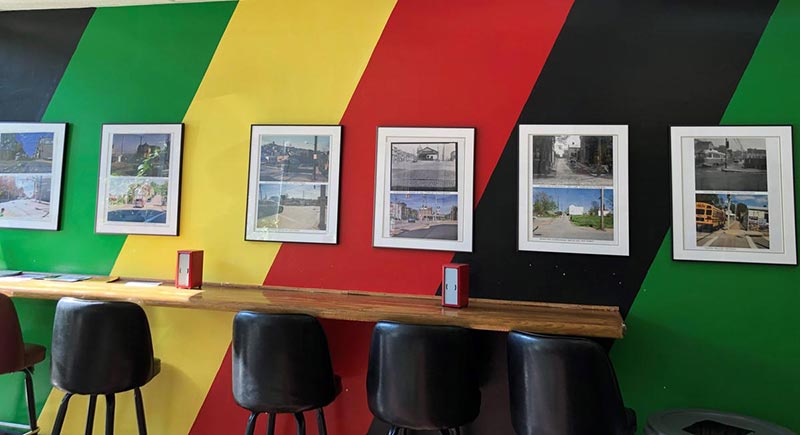
“People ask me, ‘Why Allentown?’ I say, well, it’s a no-brainer. It’s quite simply the best location in Pittsburgh to start a business,” Mader said. “It’s just an entrepreneurial culture … These storefronts are perfect.”
Mader and his partners modeled Dr. Tumblety’s Apothecary retail space off of what they experienced in New Orleans; Vintage fedoras are displayed next to old potion books and clocks, while the smell of incense fills the room. Mader said the dark lighting and array of unusual items are intentional to the atmosphere of the store.
“All you have to do is create the world,” Mader said. “They’ll come visit your world.”
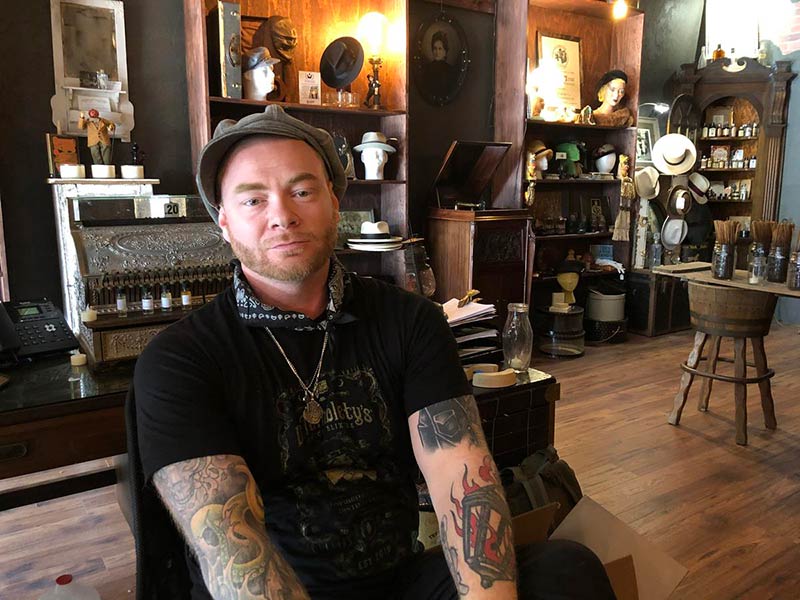
All these new store owners are taking Allentown’s identity further. According to the Hilltop Alliance, the business district’s vacancy rate has dropped to about 15 percent in the past few years. Even though the businesses may have a darker, edgier feel, all the proprietors emphasized that their shops are made for everyone.

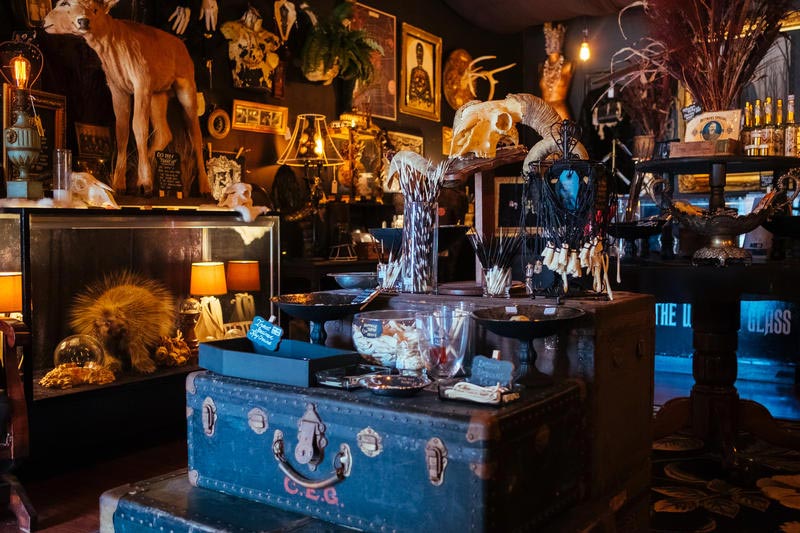

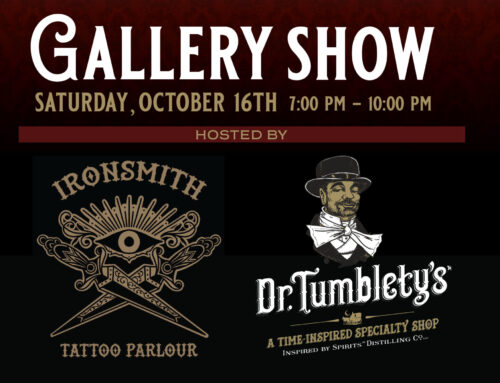

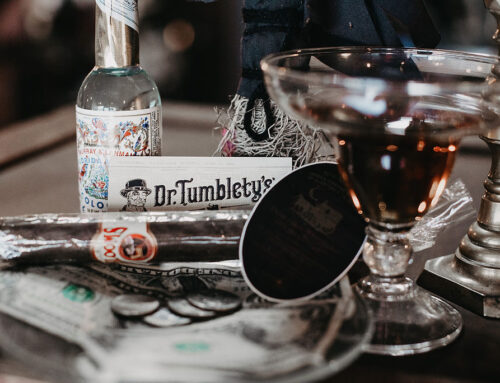
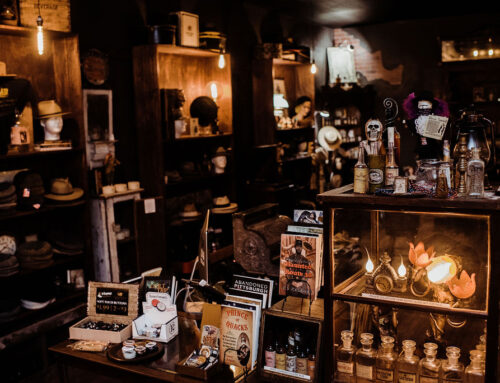
Leave A Comment